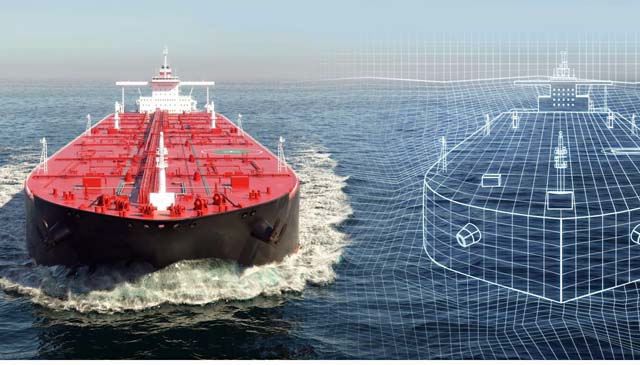Yara Marine Technologies, Molflow, and academics from Chalmers University of Technology, Halmstad University and Gothenburg University have concluded a three-year project aimed at developing an AI-based semi-autonomous system for ships to enable more energy efficient sea voyages.
The AI-based semi-autonomous voyage planning system project, known as Via Kaizen, was Initiated in August 2020, to explore how AI and machine learning can enable more energy-efficient voyage planning for ship operators. Funded by the Swedish Transport Administration Trafikverket, the project utilised pre-existing tools to enable a higher degree of digitalisation and automation in vessel operations. These included Yara Marine’s propulsion optimisation system FuelOpt and performance management and vessel data reporting tool Fleet Analytics, as well as Molflow’s vessel modelling system Slipstream. Existing work practices onboard and user needs were analysed during the design process to ensure the technology facilitated processes and decisions with the greatest impact on energy efficiency.
The resulting system was trialled onboard two vessels, a PCTC car carrier operated by UECC and a Rederiet Stenersen product tanker. The results indicated successful energy efficiency optimisation based on estimated time of arrival (ETA), with one of the two trial vessels opting to continue using the system.
Mikael Laurin, Head of Vessel Optimization Yara Marine Technologies, said: “The Via Kaizen project speaks directly to where shipping is at the moment — where the intersections of digitalisation, decarbonisation and crewing determine our success in addressing climate change. The use of AI and machine learning to plan and predict energy-efficient voyages has significance for an industry looking to lower emissions while addressing rising fuel costs. Similarly, new technologies can streamline operations but require collaboration and buy-in from stakeholders across the board, necessitating crew familiarisation and training, proactive design, and new corporate strategies. As a result, the insights and information gained from the project carry broader significance for our industry’s future.”
The Via Kaizen project demonstrated that incorporating machine-learning algorithms for improved predictive modelling of ship propulsion power can result in more accurate performance forecasting and optimisation. It evidenced the necessity of constructive collaboration between technology developers and users, as well as between ship operators and their customers.
Joakim Möller, CEO Moflow, said: “The Via Kaizen project afforded an invaluable opportunity to explore and advance industry understandings of the role big data, data handling and model development can play in supporting lower emission strategies and maximized fuel efficiencies. Recent advances in vessel data tracking and analysis, weather information, and more can be used to gauge where operations have the potential to be streamlined. As the maritime industry seeks to utilise good data to inform decision-making, AI and machine learning can play a key role in processing and simplifying available data for clear, actionable outcomes.”
Throughout the trials, crew played a key role in determining the success of energy efficient voyages, showing the necessity of giving ship crews and management every opportunity to engage with, understand and embrace the value of AI-powered ship operation support technology in assisting daily operations onboard and ashore.
Martin Viktorelius of Halmstad University said: “Maritime’s ability to successfully decarbonise is dependent on its highly skilled workforce, and necessitates that we invest in creating seafarer support for digitalisation and decarbonisation. Clean technologies must prioritise intuitive, user-friendly interfaces and understand existing operations to maximise crew support and uptake of AI-powered solutions. The Via Kaizen project engaged with crew to explore and establish key parameters that crew indicated hindered their support of voyage efficiency.”
Simon Larsson of Gothenburg University said: “The Via Kaizen project documented potential challenges to implementing energy efficient voyages — notably, the impact of crew training and corporate processes that either facilitated or hindered the effective use of AI tools to improve efficiency. These findings are not specific to the project and have wider ramifications for an industry seeking advanced solutions to rapidly reduce emissions. While crew training will afford a much-needed bridge to build understanding and accelerate support for AI-powered voyage efficiency solutions among seafarers, it is just as important that we ensure effective channels of communication with management and corporate processes.”
Following the conclusion of this project, additional funding has been secured from the Swedish innovation agency Vinnova to further explore a selection of its findings.



